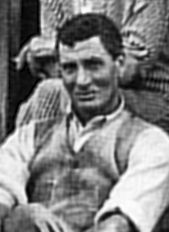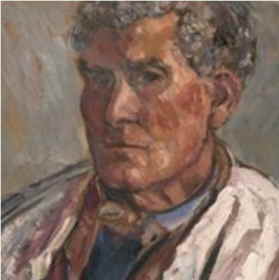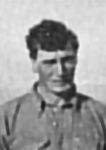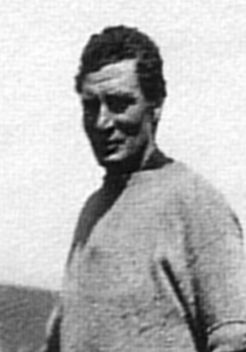Back to search results
Name: POWYS, William Ernest




Nee: bro of Llewelyn Powys, writer & former schoolmaster
Birth Date: 3 Mar 1888 Montacute, Somerset
Death Date: 4 Oct 1978 Ngare Ndare, Timau
First Date: 1911
Last Date: 1978
Profession: First major employer was the EA Syndicate, whose land stretched from Gilgil to Thomson's Falls. After WW1 he drew a soldier settlement farm in Timau district which he developed and stocked with sheep
Area: Farm 912 Kisima Nanyuki, 1922 - Gilgil, Rumuruti, 1925 Nyeri
Married: In Poole 19 July 1938 Mrs Elizabeth Sophie Douglas née Cross b. 27.1.1896 Chelsea, d. 27 Aug 1963 Nairobi (she had served with QMAAC in WW1 and was prev. m. to Alexander Douglas 1888-1968)
Children: Catherine Rose (Dyer) (10 Aug 1934 Kenya6 Feb 2018); Charles William Assheton (12 July 1936 Kenya-24 Dec 1964 Nanyuki); John Gilfrid Llewellyn (15 Jan 1938-27 Dec 2017 trampled to death by an elephant on his ranch at Laikipia); Delia Douglas by Elizabeth's first marriage (Craig)
Book Reference: EAMR, Barnes, Midday Sun, Gillett, Random, Over my Shoulder, Foster, KAD, Hut, EAWL, Red 22, Pioneers, Burke, Naivasha, A.G.D. White
War Service: Served in WW1 with EAMR, brother Llewelyn looked after farm in absence. WW1 with EAMR - E Sqdn. 5/2/15 - L/Cpl. 1/9/15; To EASC
School: Sherborne School
General Information:
Midday Sun - 'Will, the youngest son, had the family good looks, but nature and the land appealed to him more than the arts. ......... Early in 1914, at the age of 26, he set sail for EA with practically no money and no plans save to visit an old friend called Barry who had a farm near Eburru in the Rift Valley. Barry had no job for him but lent him a mule on which to go and look for one. On the Kinangop, he wrote, 'I met a wild-looking man, Seymour, on a motor-bike. He gave me a job at once for my keep, but he did not like it much because I ate a pot of jam a day. I spent my time digging wells for windmills.' He was also instructed to round up any stray livestock he could find and drive them on to the government farm near Naivasha with whose manager Seymour had a feud. ......…
W.P. moved on to work for the EA Syndicate whose huge block of land, almost all undeveloped, stretched from Gilgil to Thomson's Falls. Most of it was high, cold and wild with a good deal of forest, ..................
Came back to Kekopey after many adventures in WW1. He had captured 6 Germans, Llewellyn reported: 'the bullets whizzed round him but he did not care, when he got to their camp he ate a Hovis loaf and a great fat sausage.' Later he had been put in charge of buying cattle in the Belgian Congo and transporting them to the armies in the field, and had been awarded a Belgian decoration.' ................…. '
Drew [in soldier settlement scheme] a block of 1000 acres in the district of Timau which had on it a spring, Kisima. .... When he had saved enough money he bought 1200 Somali sheep and drove them to Kisima, taking all his belongings, including a wool press, in an ox-wagon which toppled over the side of a dam, releasing his hens from their crates and cracking the wool press. At Kisima it was so cold that 200 of the sheep died during their first night there. ..... This was in 1925 .....Then he returned to Galbraith Cole to complete his contract, leaving the sheep in the care of a young nephew, until he could settle permanently at Kisima ...... he had a natural affinity for sheep and displayed a skill amounting to a form of genius in their management. That half-true definition of genius as an infinite capacity for taking pains applied in his case exactly. He was held in the grip of what is today known as the Protestant work ethic, and lived as austerely as a monk. The white-washed mud-and-timber cottage that he built at Kisima still stands: two rooms, no ceiling, and his bed a bullock-hide stretched between four posts. ........
Much of the land round Kisima had been abandoned, or never taken up, because of lack of water. Bit by bit, Will Powys bought it up and gradually developed it by means of pipelines and dams, and stocked it with sheep which, by judicious breeding, turned in time into almost pure-bred merinos. Fortune favoured him a second time when he found a mate whose tastes, character and hardihood so closely matched his own. ........ He and Elizabeth shared a rather childish weakness for practical jokes. ...... Despite lean times and credit freezes, Will gradually added to, developed and consolidated his properties. He ended up with 3 separate but interdependent units which together totalled about 83000 acres and supported 29000 sheep and 7000 cattle. There was also wheat at Kisima, two crops a year; Galloway cattle imported from Scotland and a property at Malindi on the Coast.
Throughout his life he took no part in politics. .......... Will was first and last a farmer, not an intellectual; nevertheless the creativity that ran in his family was in him too. In undeveloped countries, farming is in itself creative; with virgin land as his canvas, the farmer translates his vision into fields and pastures, crops and cattle, as an artist will apply his paint. ........ He also painted the landscapes he loved, and used to offer a picture as a birthday present to each of his children. 'Choose any scene you like,' he would say, 'and I'll paint it for you.' ........ All his pleasures centred on his family, his sheep and cattle and his properties: Kisima, Ngare Ndare and Il Pinguan. ....….
His life was happy and successful, yet from a self-portrait done in old age a sorrowful, almost tortured face looks out, spectacles on nose, a black skull-cap pushed on to the back of his head. Sorrows did indeed cloud his last years. Elizabeth died in 1963 when she was only 67. Less than 18 months later his eldest son Charles, who had inherited the Powys charm and looks as well as the intelligence and energy of both parents, accidentally shot himself on Christmas Eve. He was 25, and left a widow and an infant daughter. One of Will's legs turned gangrenous and had to be amputated, and the stump pained him for the rest of his life. But he drove out daily in his Land Rover to see his sheep, and kept his hand on the controls until the end. ....
He died in 1978 in his 90th year and was buried beside Elizabeth and Charles in Nanyuki churchyard [cemetery].
Foster - Pat Ayre ran (and owned?) a saw mill at Meru and another one on the Loldaiga Hills. The timber from this mill was used by Will Powys to build his permanent house - which is still the family home - on Kisima Farm (Plot 912).
Elizabeth Cross had drawn a soldier settlement farm near Thika but later worked in Tanganyika and then near Nanyuki. Random - 'Llewellyn Powys's brother Will Powys was by now released from the Army and he came to Gilgil and arranged to trek with the sheep to the new land at Pingwan [Laikipia] early in 1920. ........ Later, when we bought Solio, Will Powys went there, and his nephew, Theodore, who joined us in 1925, went to the Pingwan.'
Over my Shoulder - 'When his son Gilford protested that he should start to take things a little easy, his only answer was to go off and buy another farm 'where I can have some peace and plenty of work, and no interference!'' ....... 'He told us something of his early days in Kenya. He worked for Mr Seymour at Naivasha when he first arrived in 1914, and then for the East African Syndicate at Gilgil. From there he went to Galbraith Cole and remained with him until 1925. That year there were a number of soldier settlement farms made available for ex-soldiers. Names were put into a hat and, with amazing good fortune, Will Powys name came out.
Their farm was called 'Kisima', and there Elizabeth and he staked their fortunes. He started from scratch with native Masai ewes entirely hair-coated, and on their progeny by his New Zealand rams he bred generation after generation to eradicate the hair and hopefully put a fair covering of pure wool on them. ......... He started with 1200 Masai native 'haired' ewes which he had brought from the hot country of Rumuruti up to the cold of Kisima. Their arrival coincided with 24 hours of non-stop sleet and rain. By the next morning two hundred were dead. A neighbour warned him that in the extreme cold one often had to keep the sheep in barns as they did in Canada. So he built an enormous barn in which to pen them at night, and he felt he had, at last, got the situation under control.
A few weeks later, however, one dark night a leopard dropped down through the thatched roof onto the sheep, killing a considerable number before the alarm was raised. The leopard escaped in the melee. 'I paid dearly for that experience,' Will reminisced, 'and it sent me scurrying to Nairobi for the purchase of my second farm, Ngare Ndare. This was 2000 feet lower than Kisima and was not so vulnerable climate-wise, although it was a particularly bad area for that most pernicious of all killers, Laikipia lung disease'. ...…
Will Powys died in 1978, nearly 90 years young, a fighter of integrity to the end. God rest his noble soul.' (more pp. 116-119).
Foster - 'First worked with Doctor Deering at Naivasha and later as a manager for the Cole brothers and Lord Delamere. During the War he served in the East African Mounted Rifles as a trooper from 1914-16 when he, like Lennox Murray, joined the Army Livestock Purchasing Unit. Before coming to Timau to settle permanently on Kisima (Farm 912), he had managed Solio Farm for the Hon. Galbraith Cole, who had inherited Solio on his brother, Berkeley's death. Powys recalls how he finally arrived at Timau in 1925 with all his worldly goods on a blue Merryweather waggon made in Pietermaritzburg and costing £120 in 1925. The Donald wool press (costing £40) which he brought with him was damaged when the waggon overturned just as it was negotiating a dam wall on Billy Beale's farm. The wool press is, however, still in use at Kisima. Powys, in extreme old age, when reminiscing about the early days at Timau, always commented on Beale's great kindness and help to him. ............ The cheque for the first wool from Powys' Kisima farm barely paid the cost of the shipping of the wool from Mombasa to London. However, as his sheep management at Timau improved so did his annual wool cheque. ........…..Laid the foundation stone of the Church of the Good Shepherd at Timau in the 1950s.
Pioneers - Nanyuki - Arrival at Kisima - Will Powys - I arrived early in 1914 and went by train to Naivasha to an old friend, Nat Barry, who had invited me to stay. At Naivasha the Station Master said he'd had a note from Barry asking the engine driver to stop the train by the Eburru track. There the guard pulled out my trunk and chucked it into the leleshwa bush. The train then rushed on leaving me sitting on my trunk. It was approximately 5.30 pm. I viewed the country with Lake Naivasha to my left and large yellow fever trees all around. It got darker and darker. Eventually I saw car lights up on the Eburru hills. These came slowly, slowly down - at last Nat Barry arrived. He had been stuck in the mud for ages.
Barry lent me a mule to go and look for a job on the Kinangop. Here I met a wild-looking man, Seymour, on a motor bike. He gave me a job at once, for my keep, but he did not like it much because I eat a pot of jam a day. I spent my time digging wells for windmills. Another job I had to do was to collect all stray animals - camels, cattle, donkeys, etc. and shove them through a gate on to a Government farm. This was to annoy Mr Macdonald, the manager, with whom he was having a row over a wool press. I was not supposed to go over there nor meet him, but I did, and asked him to find me another job as he was just off to a show at Eldoret. He did this. It was a job on the EA Syndicate until my brother Llewellyn, relieved me so I could join the East African Mounted Rifles at Namanga.
On my return from the war I went to Galbraith Cole at Gilgil until 1925, when I left for my own farm, Kisima, which I had drawn in the Soldier Settlement Scheme. Lennox Murray had been there and told me all about the area. He said you could meet a polar bear there it was so cold. ……… [more]
Burke has William Edward Powys, son of Rev Charles Francis Powys, of Montacute, Somerset
Naivasha - As late as 1924 can be remembered massive omelettes made from ostrich eggs which were delicious. It is said that W. Powys used to bore a hole and pour out sufficient egg for his breakfast, an egg lasting between three and four days.
A.G.D. White - Will Powys, a famous early settler, travelling through on his mule, called on Margaret {Collyer} and stayed the night. During the evening she asked him if he would like a bath. She then shouted to her servant, 'leta maji' (bring the water), whereupon the tin bath was brought in and put beside the fire, but Will was slightly disconcerted when Margaret refused to leave the room.
Gazette - 3/12/1919 - Register of Voters - Rift Valley Area - W. Powys - Farmer - Elmenteita
John Kingsley-Heath - He died at over 90 in the 80s having lost a leg due to bad circulation. He had 2 sons and a daughter. Charles, the eldest, was killed in a self-inflicted gun accident. Gilfrid continues to run the family farms assisted by his 2 nephews. His sister Rose married Tony Dyer, from a Kenya family who lives on Ngare Ndare farm, the lowest of the farms in the Timau area.
It is said that Will Powys left England due to an incident at cards with a member of the Wingfield Digby family of Sherborne, Dorset.
Buried in Nanyuki cemetery
Gazette 6 Dec 1938 Aberdare Voters List
Nanyuki cemetery William Ernest Powys 3 Mar 1888-4 Oct 1978 AND Elizabeth Sophy Powys d. 27 Aug 1963 Nairobi AND Charles William Assheton Powys 12 July 1936-24 Dec 1964 Inscription: In memory of / our beloved / Charlie / "greater love has no man / than this, that a man lay / down his life for his friends" / C W A Powys / Kisima / 12.7.1936 - 24.12.1964
Gazette 18 Aug 1964 wife's probate
Handwritten note in Ayre archive: 'It is said that Will Powys left England due to an incident at cards with a member of the Wingfield Digby family at Sherborne, Dorset.'
Back to search results




